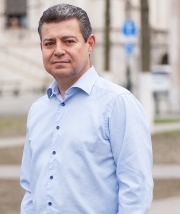The transformative potential of artificial intelligence (AI) in Africa is immense with emerging innovations expected to boost the continent's economic growth by an estimated US$2,9 trillion by 2030, according to GSMA’s AI4D Africa report. AI is not only poised to accelerate economic development but also to reshape Africa’s social and cultural landscape by empowering rapidly growing and dynamic youth eager to adapt to new forms of digital work and entrepreneurship.
Africa’s propensity for innovation, ingenuity and creativity is evergreen and primed to thrive. The landscape in which it exists must evolve to realise Africa’s potential for technological prowess.
Currently Africa represents a mere 2,5% of the global AI market with the continent dominated by foreign AI products and solutions that are incompatible with local needs.
According to Oxford Insights’ 2023 Global AI Readiness Index, which examines AI readiness in nine global regions, sub-Saharan Africa ranked last. As it stands, less than 10 African countries have established national AI strategies. Notable proactive countries that have published comprehensive national AI strategies include Egypt, Rwanda and Mauritius. Nigeria, Kenya and South Africa have established tech and innovation hubs committed to developing AI ecosystems.
Remedying this disproportion in technological growth is in the best interest of the continent as a whole. Establishing an AI-first position for innovation creates untold opportunities for local skills development, foreign investment, increased funding and the creation of new industries. As such, African countries are accelerating their efforts towards AI knowledge creation, capacity building and the development of innovation processes focused on their own unique challenges rather than simply replicating strategies from the global North.
For AI innovators across the continent, this shift in focus is not just an opportunity but an imperative. To unlock the untapped potential of AI in Africa, there are a myriad of hurdles to overcome. These include the notable skills gap in digital literacy and the application of AI, insufficient technological infrastructure and inadequately integrated regulations and policies to govern the ethical use of AI.

According to Steven De Backer, founder and CEO of legal intelligence firm Afriwise, one of the greatest challenges faced is the continent’s largely unstructured data ecosystem and lack of access to extensive and representative data. “Africa is rich in data, but the data has not been aggregated: more than 90% of data being generated daily is unstructured and the volume is set to increase by up to 65% annually. AI intervention offers the only viable solution to making sense of this data in real-time. As data is the core of economic transformation, establishing secure, rich and trusted African data sets is of utmost importance.”















